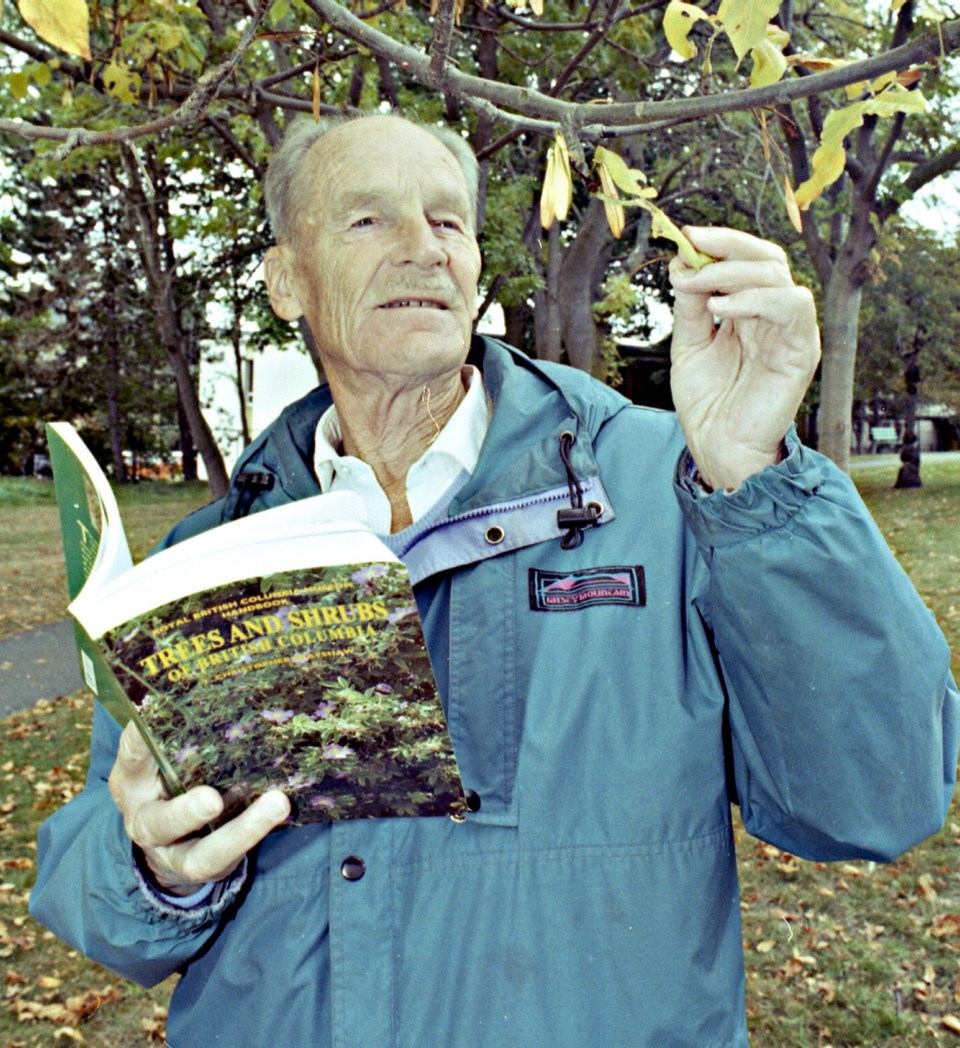Victoria botanist Chris Brayshaw was a quiet but powerful advocate for B.C.’s native plants — searching for them far and wide — even hiking with a canoe on his back to remote areas. He loved plants, studied them, drew them and wrote about them for professionals and the public alike.
“He was a plant whisperer,” said friend and former colleague Richard Hebda, curator of botany and earth history at the Royal B.C. Museum, who credits Brayshaw with awakening wider understanding of the undervalued native ecosystem in B.C.
Circa 1968, Brayshaw established around the museum grounds the first major native plant garden in Western Canada — “quite a revolutionary concept,” Hebda said. Moreover, he collected hundreds of specimens himself, some of which are still alive.
“At that point, people really never thought of having native plant gardens or even growing native plants much in their gardens,” Hebda said. Brayshaw also provided content for the museum’s forest dioramas still on display and recognized as some of the world’s best.
An only child and the last of the Yorkshire Brayshaws, Brayshaw died at 95 on Dec. 22. A by-invitation celebration of his life takes place Thursday afternoon at the Royal B.C. Museum’s Newcombe Hall.
Brayshaw had to retire at 65 in the mid-1980s; he then volunteered full time for the next 18 years.
He loved solitary field trips and once climbed “with a canoe on his back on a treacherous mountain to find a rare lily in an alpine pond,” said a eulogy by Mary-Lou Florian, a friend from their 1950s PhD days at the University of British Columbia.
Whether it was investigating recalcitrant willow trees or leading public tours, Brayshaw brought tremendous focus and insight to the matter at hand.
He was one year old when his parents emigrated from England to Vernon where they homesteaded. His father was a teacher, fly fisher and artist; his mother, a botanical artist. Their love of nature flourished in their only child, who never married.
“He made his life with his botany,” Florian said.
As a young man, Brayshaw was in the Royal Air Force during the Second World War, serving as a navigator hunting U-boats along the Irish coast. He received the Distinguished Flying Cross.
Brayshaw was a quiet, unassuming man who waited for others to engage him in conversation, then was known to respond in great volume.
His well-known frugality kept his ecological footprint small, Florian said. Even as a senior citizen, he wore the high-quality pants he received for high school graduation.
An avid walker, Brayshaw lived for years in a James Bay high-rise with few plants, hoofing to his beloved Beacon Hill Park, where his concern for the blue camas never wavered.
He underwent a hip replacement in his late 80s to facilitate getting around and kept his faculties up to the end.
He was “annoyed” to be taken to hospital for pneumonia, said friend Helen Oldershaw, a past president of the Friends of Beacon Hill Park. He expected to recover but complications set in and he died in his sleep.
Brayshaw named at least two native plants: the glandular form of the Beaked Hazel Nut and the oval-leaved form of Alaska Willow. His books included Trees and Shrubs of British Columbia and Pondweeds and Bur-reeds and Their Relatives of British Columbia. His illustrations for museum books are “magnificent,” Hebda said.
Brayshaw was highly self-sufficient, Oldershaw said.
“He would go on these trips in the summer time to South America, the West Indies or wherever. He always made friends because he was such a gentleman. I never heard him say any negative things about anybody. He was a gentleman and a scholar and a valued friend.”



